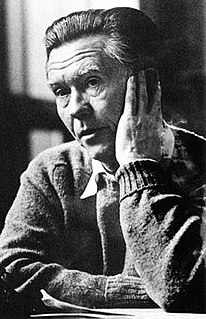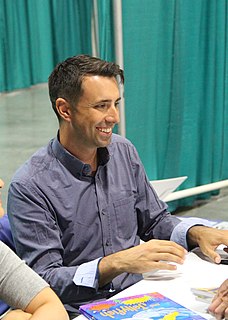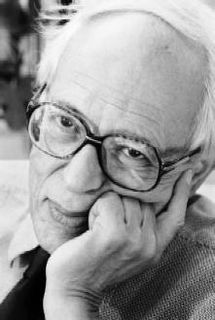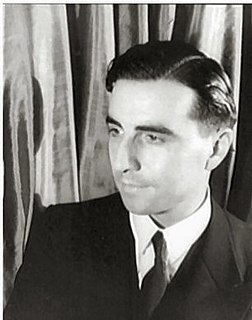A Quote by Terry Pratchett
An author writes a book, and that's the book at that point. And if the author writes the book again, then somehow something has gone wrong, if you see what I mean.
Related Quotes
No one really knows the value of book tours. Whether or not they're good ideas, or if they improve book sales. I happen to think the author is the last person you'd want to talk to about a book. They hate it by that point; they've already moved on to a new lover. Besides, the author never knows what the book is about anyway.
Whether the author intended a symbolic resonance to exist in her book is irrelevant. All that matters is whether it's there. Because the book does not exist for the benefit of the author, the book exists for the benefit of YOU. If we as readers can have a bigger and richer experience with the world as a result of reading a symbol and that symbol wasn't intended by the author, WE STILL WIN.
Cormac McCarthy is my favorite author in the world. I love him so much. There's one book that informs me more than The Road - it's called Suttree. That book is a huge influence on me. I'm not smart enough to emulate him, but he inspires me. He never infiltrates my writing directly. He writes incredibly intelligently about people that are marginalized.
Frequently, an author gets "orphaned" at a publisher. What this means is that an editor buys their book, then ends up getting fired, promoted, or transferred to a different job somewhere else. It sucks for the author because suddenly the person who liked your book enough to buy it isn't around to help you edit and promote it.
[Raymond Roussel] said that after his first book he expected that the next morning there would be a kind of aura around his person and that everyone in the street would be able to see that he had written a book. This is the obscure desire harboured by everyone who writes. It is true that the first text one writes is neither written for others, nor because one is what one is: one writes to become other than what one is. One tries to modify one's way of being through the act of writing.
I see a lot of writers who complain when their book doesn't sell and the reason that happens sometimes, is they don't know how to publicize or promote themselves. A writer is more successful when they're involved in their literary community somehow. It's very easy for an author's book to fade away if they don't get out in public and meet people.
Reading a book should be a conversation between you and the author. Presumably he knows more about the subject than you do; if not, you probably should not be bothering with his book. But understanding is a two-way operation; the learner has to question himself and question the teacher, once he understands what the teacher is saying. Marking a book is literally an expression of your differences or your agreements with the author. It is the highest respect you can pay him.


































